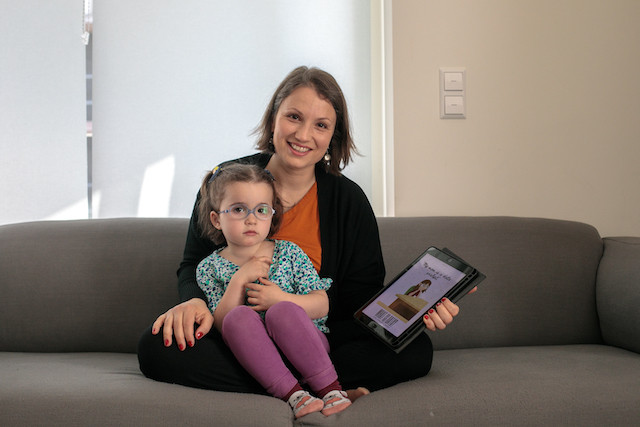Spanish national Aida Horaniet Ibañez began writing the “My Mom is a Data Analyst” series during one of the lockdowns, when her daughter asked what she was doing. “It was the first time I was working 24/7 next to my daughter. She was super curious about what I was doing,” Ibañez recalls. Little by little she wrote down her stories and, thanks to a crowdfunding campaign, has commissioned beautiful illustrations depicting culturally diverse characters.
“I’ve published three so far, on my blog,” she says. “I started by explaining what is data, looking at how many birds, how many cookies I eat? Then how to collect data.” Ibañez has plenty more in the pipeline and says it is rewarding to help remove the stigma from the subject. “I think when you read something as a child in a book, you stop being scared of it. It doesn’t matter if you don’t understand, you remember it was funny and then when you have to study that it’s something cool.”
For the data analyst, who trained as a telecommunciations engineer and did a master in management, the stories are a way to share her passion for and help democratise data as it plays an increasingly important role in global economies. “We need to make a greater effort to help everyone understand data, starting with kids but also for older generations,” she says.

“My Mom is a Data Analyst” is an online series of stories explaining data to children. Photo: Matic Zorman
Ibañez is motivated not only by the desire to bring everyone on board in terms of data skills, the analyst points out that the lack of diversity among people working with data can often to lead to biases in algorithms. As an example, she cites facial recognition software that could not recognise people of colour. In this instance, the issue derived from a lack of data diversity, something which is common, she says. These sorts of issues can be avoided if the team developing algorithms and software is diverse. “They will realise they don’t have enough data to train an algorithm directly but at least they’ll do something to correct it.”
Data management skills are hotly demanded in Luxembourg, and globally. Ibañez suggests one way to meet this demand would be to train and empower the people already working in the fields covered by the data. “It doesn’t take long to train people to work in data and it’s all about open tools,” she says, “We should give people the opportunity to get familiar with data, and not stick with this obsession with hiring a wonderful unicorn who is going to create these crazy things. In my mind there is no such thing.”
Since February, Ibañez has begun exploring other uses for data exploration, starting a PhD in Luxembourg industrial history, with a focus on data visualisation. “It’s easier to share,” she says of the new project. “Now when I discuss my work with my husband he’s interested. Before, he didn’t understand!” she laughs.
